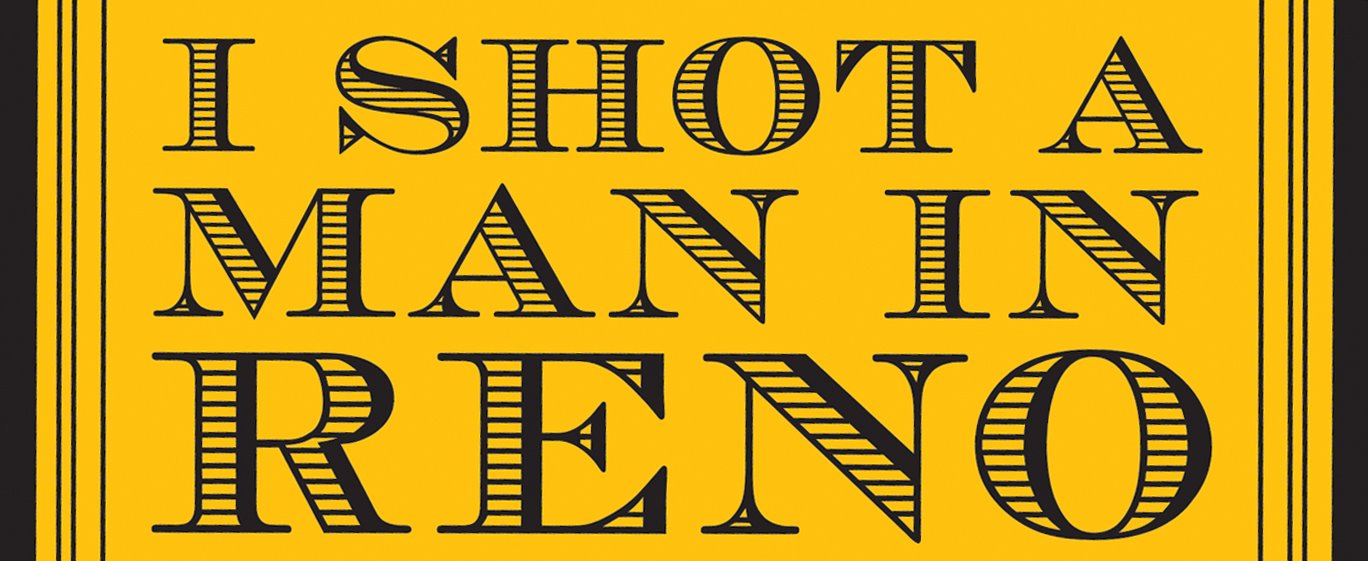
Are you always aware when death crops up in your writing?
I take it for granted to the point where I’ve never really even thought about it – it’s just a natural thing that a song would have that subject matter. Coming from the folk tradition, it’s all over the place. In a sense, popular music seems strange because it doesn’t talk about it that much.
Why do you think that is?
You hear in some pop music this sort of endless Peter Pan-ish attempt to keep on strutting. I admire the energy. A band like the Stones can still put on a good show but there is this sense that they’re not dealing with life, they’re shoving it under the carpet. It depends on how people see their role – if it’s just as an entertainer, which is fair enough, then that’s what you do. But if you write - and the Stones write songs - then they should be writing something a little deeper. As they used to. They used to write songs that reflected the [60s] culture and drug culture extremely well.
How do you approach the subject of death in your writing? Do you consciously come at it from a specific angle?
You don’t sit down to moralise or write about your philosophy every time you write a song. You just write a story. It’s fiction and it’s fun to make something up, it’s an enjoyable process. Then you look at it afterwards and you think, ‘Oh that’s obviously about me or about someone I know, and that reflects what I believe.’ With a song like "Did She Jump or Was She Pushed?" I sat down to write a story. It could be about Sandy [Denny] or a couple of other people that I know…. I don’t think it is about any person in particular. It’s a bit like detective fiction, it has some of the same goriness and detail. In good detective fiction there’s always a corpse, otherwise you feel unsatisifed. The song doesn’t really give any answers, it just asks the moral questions.
"Meet on the Ledge", on the other hand, seems to speak of a very firm belief in reincarnation.
"Meet on the Ledge" is quite a spiritual song. Even at the age I wrote that, probably 18 or 19, I had that belief and that is reflected in the song in a subtle way. It can be taken in many ways, as fans continually remind me! The thing about the obfuscation of the 60s – and I sort of hold Dylan responsible for making lyrics slightly obscure - is that you can interpret forever these very simple songs. It changes a bit. It’s a song that I feel I outgrew, actually fairly quickly, in about five years or so. I felt that song didn’t really speak for me. Not because I thought it was an adolescent song, but I thought it was a slightly clumsy song in its delivery. It’s only because that it became kind of anthemic for some people that I revisited the song. I had to drag it out and look at it and think, are there things I can extract from this song so that I can continue to enjoy it. And there are. Because it is so vague and so obscure in its references I can find things in it that still speak for me.
Do you intend for these songs to be comforting?
That’s interesting. Some songs might have that function. Some songs have a role to play for the writer/singer, especially if you’re a singer-songwriter and you’re revisiting songs nightly from all parts of your career. Some songs are like reminders. There’s another song called "Wall of Death" which may also be in your area of interest. It has other functions as well, but one of its functions of that song is like a memo to myself every night to take risks. To be on the edge and not quite safe, in the musical sense and perhaps in the life sense as well. For me it’s quite literal. The obvious thing to say is that a song about death is a song about life. The sentence has a full stop, without which the sentence wouldn’t be complete and would have no meaning. It’s just the human condition. It’s more satisfying to include the end of things, to give shape to whatever you’re writing about.
Have you ever sat down and specifically written a song for someone who has passed on? Or is it less direct than that?
It can be either. You can absolutely sit down and write something that is like a requiem for someone, a tribute. In my own work, I wouldn’t really want to pinpoint those, it’s just too personal. And I’m sure I’ve written songs that have subconsciously been about people. "Never Again" is a song of bereavement. I lost a friend when I was quite young and that song is just trying to deal with that. It’s a real song of loss and regret as far as I can see.
Is it hard to revisit these kinds of songs onstage?
It is difficult [to find the emotion]. If you invested every emotion that was in every song every night you’d just tear yourself to pieces. I don’t think anybody could do it. You have to have some kind of way of turning on and off, or modifying it somehow for a night-to-night thing. You are putting a lot of emotion into night after night, but if you let it really get to you you wouldn’t be able to get through the songs; you’d collapse like a quivering jelly on the stage. A dramtic persona takes over that allows you give yourself a slight distance from embodying songs. It’s total concentration and involvement in the song, but at a point you’re being the actor speaking the lines, especially if you’re the writer as well.
It’s interesting what you said earlier about ‘asking moral questions’. What strikes me about a lot of the old ballads is that they address morality without neccesarily giving any easy or clear-cut answers.
In the old ballads there was always a moral dimension. Something like "Tom Dooley," it’s the ballad functioning as both news AND editorial comment. In societies where people didn’t particularly read or there wasn’t a radio or TV, that was the way the news was carried. The function of these songs is to get it out there, so that it’s been sung about as a real thing that has happened. You sing about your hard times at work, your happy times like weddings, and you deal with the local problems, the dark things that happen locally, that’s the arena where it’s OK to bring that stuff and sing about it on a regular basis in the guise of a good tune. In that way society is dealing with the problem of what you do with someone in the community. It’s performing the function of a newspaper.
Are these songs threatened by the propensity of media outlets in modern times? Is there a danger that they become irrelevant?
People haven’t rejected the ballad yet. They still like to hear a story song, even though they have newspapers and other stuff. There is something satisfying about that picture of the world. It’s hard to say why, but there’s something satisfying about the way they deal with life and death. The audience like to deal with these kinds of subjects. In a song often you’re dealing with things that are below the spoken desires of the audience. They are below consciousness, these things that are slightly troubling and below the surface, and as a songwriter you look for those things. You turn them into songs and sing them and sometimes it can be unsettling for the audience, especially the ones that deal with serious subjects, but because it’s entertainment you can do it and the audience will go through that process. They almost like to be unsettled. It’s part of the job of a songwriter, and its part of way the audience expects – from me, anyway.
The title of my book is taken from Johnny Cash’s "Folsom Prison Blues". Are you a fan?
It’s a wonderful song. Very simple but it tells it like it is – a slice of real life. Mindless acts. America is the place for that. American prisons are just jammed pack full of people who are there forever for [killing] people who were just passing in the street. It’s tragic. It’s gotten very, very dark in America, and it will get darker.
A recent song of yours, "Dad’s Gonna Kill Me," makes explicit that the most terrible and inevitable consequence of war – Iraq, in this case - is death.
To me, the song is a clarification of the war for the audience. It’s saying: ‘This is what politicians say about the war, and this is what the war is really about.’ It’s clearly two different things. It’s important that people hear their entertainers talking about the Iraq War. The most devastating consequence of the war is that someone that you know has died. Perhaps it’s your son. Good and bad is irrelevant when you’re talking about things like this.
Do you feel that popular music has a decent grip on death as a subject matter?
Pop music is a big area. It’s not just young people’s music, it’s not like it was in the 50s and 60s, now it’s multi-generational. It embraces a lot of styles. A lot of the protagonists of popular music are now dead or old – sixty-somethings. I think inevitably and hopefully popular music reflects everything: life, death and everything inbetween.
I think an awareness of mortality is becoming more pronounced in your own work. Would you agree?
Yes. As I get older I start to think about those kind of things and I start to write those kinds of songs. It preoccupies you more; hopefully it becomes a friend rather than an enemy. Society sees death as an enemy - that's why we're so good at generally removing illness and dying from everyday life. When people get sick or old you stick them in a home or a hospital or on the street. But I think you have to try to embrace death and to “die before you die”, is the expression. It’s something that’s always there, you have to deal with it in any belief system. It’s important to understand how to live and it’s important to understand how to die.




6 comments:
Marvelous interview, Graeme. Thanks so much for sharing it. I look forward to reading your book.
Great! Thanks for sharing that.
The answer to the first question is a real gem. Christine Collister was not wrong when she wrote that Richard Thompson is a genius.
Richard Thompson is one of the finest, and most underrated, artists of my lifetime. An amazing talent.
Great post thank yyou
I find it interesting how he approaches death in his writing as just another element within the story.
Post a Comment